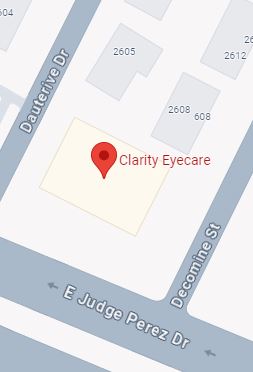Comprehensive Eye Exam
Annual Chalmette Eye Health Exam
Much like how it is recommended you go to your general physician once a year and your dentist twice a year, you must visit your eye doctor once a year to check on the health of your vision. The younger you start visiting us on a regular basis, the better. Unfortunately, many adults and children think that they can see perfectly fine, so there is no need to go visit an optometrist. As it turns out, though, once a patient gets their first pair of glasses or contact lenses they realize how unclear life truly was beforehand.
Our Chalmette optometrist doesn’t just focus on improving your entire family’s vision. Although this is a large part of the job, our optometrist also checks to make sure that your family’s eyes aren’t exhibiting any signs of disease or illness, such as cataracts or glaucoma.
Eyecare For All Ages
According to the American Optometric Association (AOA), children as young as 6 months old should start getting their eyes checked, then again at age 3, and once again at the start of school before coming in once a year. If your child already has vision problems, they should come in more frequently, especially if they are more at risk due to the following factors:
- Premature birth
- Delays in development
- Crossed eyes
- Family history of eye disease
- Previous eye injuries
Eye Exams Are Necessary To Update Your Prescription
Our annual eye exams encompass a number of different tests that give us important information on how your vision is doing. When the time comes to update your prescription, it is essential that we have the most recent and accurate information about your eyes so that your prescription helps you see clearly. Some of our tests include eye charts and digital retinal imaging.
Common Reasons To See Dr. Leslie Pham, Our Chalmette Eye Doctor
There are many reasons you and your children should visit our eye doctor. These reasons may seem like nothing but are worth getting checked. Among these reasons are:
- Sudden blurred vision
- Eye pain or soreness
- Random specks that appear in your vision
- Halos when you look at lights, especially at night
- Double vision
- Dryness in the eye




